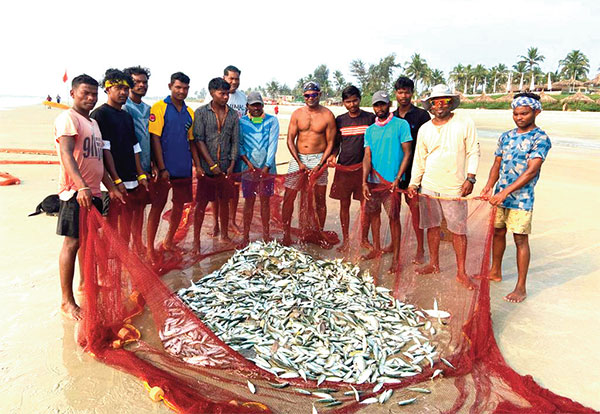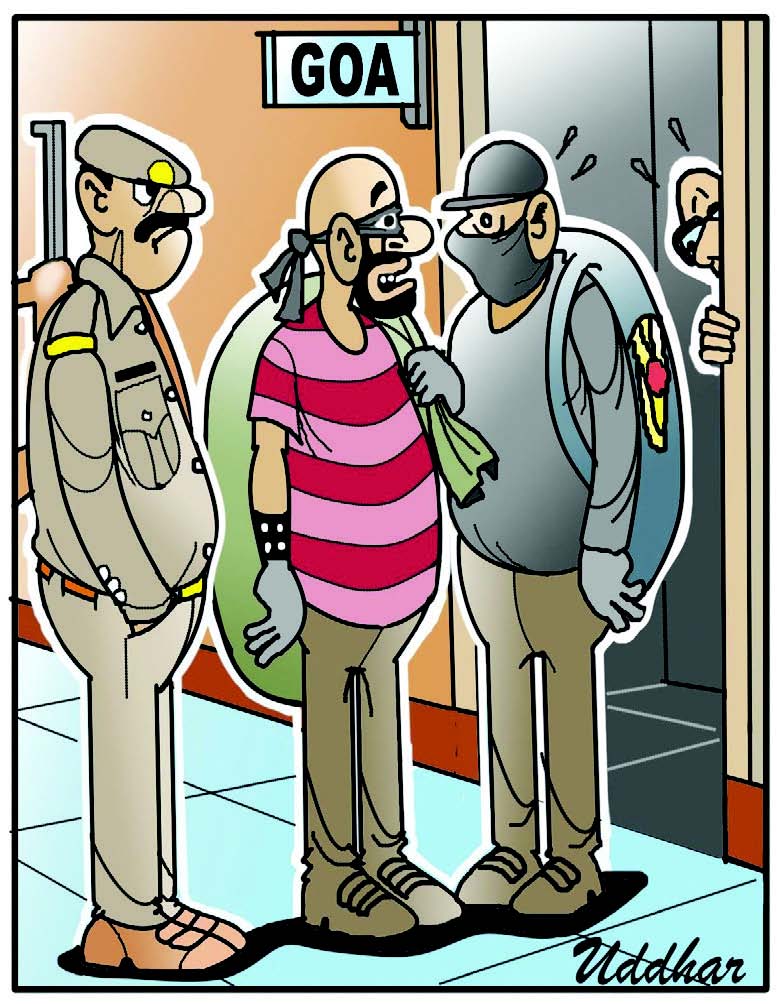
MARCOS GONSALVES
MARGAO: For the past few years, traditional fishing – one of the oldest occupations of Goa – has been slowly fading into oblivion, say veterans of the State’s fishing community. The reasons are many; the fast-depleting fish stocks aside, younger generations of fisherfolk have a different outlook and approach to earning a livelihood, and many cannot resist the draw of working and living overseas, rather than in the seas. And the looming extinction of their identity, along with their quaint occupation has left Goa’s remaining and ageing traditional fishermen anxious.
A few such veterans can be seen working hard to convince the youth of their community not to side-line the work of their ancestors, and to venture back into the sea, because the future of sustainable fishing may depend on it.
They are of the opinion that the government, who they say has failed to protect the rights of the traditional fishermen, should at least introduce fishing as a subject in the academic syllabus in schools, to make the occupation more attractive to youth.
In conversation with O Heraldo, Remedios Crasto, a veteran fisherman from Assolna admitted that there is a sharp decrease in the number of Goan youth taking up fishing using the traditional methods.
“Presently, we can witness a sharp decrease in traditional fishing, the reason being that youth from our fishing community now prefer to go aboard in order to earn their livelihood, instead of depending on fishing here in Goa,” says Crasto, stressing that he and his colleagues have spent their entire lives trying to hold on to their skills and identity.
At the same time, he also believes that there are a significant number of youths who are dedicatedly working in the traditional business of fishing.
“We have noticed several youths who had returned to their homeland at the time of the Covid-19 pandemic and took up their original business of fishing. They had realized that their earnings in other countries and on the cruise liners cannot be their permanent security,” says Crasto.
“Taking away the rights of the traditional fishermen has resulted in dark clouds over the sustainability of the fishing occupation,” he remarked.
According to Crasto, it is high time that children are taught the basics of this occupation at the school level, which is not just a survival skill to have, but could also awaken in them an interest in the occupation, at a time when fisheries have become an exploitative industry of LED and explosive fishing and caged fish
farming, which yields seafood that is nowhere as nutritious or healthy as wild fish.
Pele Fernandes, another well-known fisherman from Benaulim, said that he and his brother Agostinho were determinedly working towards protecting their family business of traditional fishing.
“We have been in this occupation since childhood, despite facing several hardships,” he says. He laments that the younger generation of his community is not attracted towards the fishing business, mainly because there is not much profit – considering the hard labour that goes into it.
“One thing we must remember is that profit and losses in traditional fishing totally depends on the catch and no one can predict what kind of catch we will get after venturing into the sea,” says Fernandes, adding that the uncertainty and back-breaking physical strain of the occupation are not the younger generation’s cup of tea.
“I love traditional fishing, it is my passion,” says Fernandes.
He suggests that the Fisheries Department should offer help by implementing smart subsidy schemes
and simplify the process to avail of them.
“There are a huge number of traditional fishermen who cannot afford to invest money to procure the required equipment, and many are living off their daily earnings,” explains Fernandes.
Another fisherman, 65-year-old Francisco Fernandes, echoed his sentiments.
“I feel very bad to see several fishermen have sold their nets and dismantled their boats and canoes, as they have nobody in the family to carry on with the fishing occupation,” he says. “The fishing trade run by Goan-origin folk has been running for centuries and it should be carried on for future centuries. We are hopeful that the government and other stakeholders will help protect our fishing stocks and promote sustainable practices, so our descendants can carry on our lives’ work,” says a hopeful Francisco.
